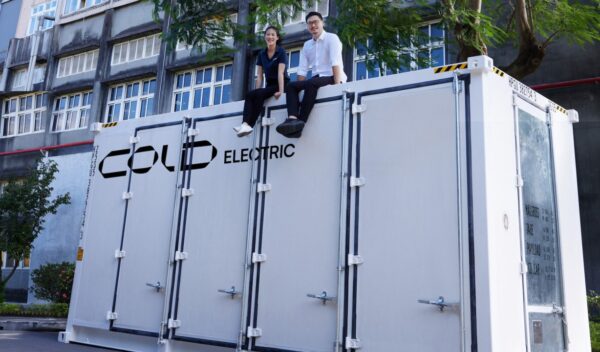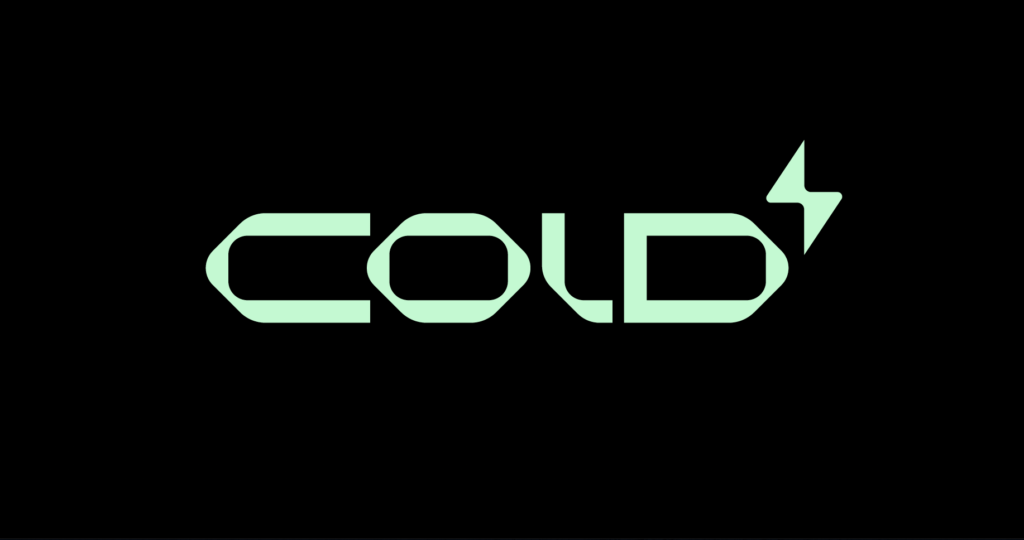 Back
Back
How Cold Electric took VOYAGERS’ climate festival 🔥THE HEAT off the grid
🔥THE HEAT is entirely powered by renewable energy — thanks to our partner Cold Electric, whose gigantic battery-pack took our festival off the grid.

THE HEAT, VOYAGERS.io’s first-ever climate-tech festival, took place on Friday September 20 2024 at the extraordinary Harwell Science and Innovation Campus in Oxfordshire.
THE HEAT is a hands-on, practical, mind-expanding, friendship-building, exploratory, curiosity-led, science-based, creative, artistic, participatory, decentralised, experimental, edgy, live, risky, urgent and unpredictable gathering of the talented people working on climate technologies. THE HEAT is not a conference. Don’t expect dull panels or awful coffee. Instead, come to make new friends, experience science in action, learn and share your knowledge, inspire and be inspired. Bring your most engaged and curious festival mindset.
THE HEAT is entirely powered by renewable energy — thanks to our partner Cold Electric, whose gigantic battery-pack took our festival off the grid.
Learn more about it in our article below and at https://ColdElectric.com.
THE HEAT is a climate-tech festival entirely powered by renewable energy — thanks to our partner Cold Electric, whose gigantic battery-pack took the event off the grid. Based in Taiwan, the 130-person startup makes what it claims is the only battery that can be subjected to open flames when live without producing smoke, fire or the dangerous self-sustaining process of overheating known as thermal runaway.
Unlike lithium-ion batteries, which can easily catch fire, Cold Electric’s lithium iron phosphate batteries have been rigorously tested over 15 years to ensure that they are non-flammable, positioning them as safer. That matters: the US Consumer Product Safety Commission recorded more than 25,000 lithium-ion battery fires between 2017 and 2022, resulting in an estimated 13 deaths and 141 injuries.
Cold Electric brought its OG (Off Grid/On Grid) unit to THE HEAT, offering 2.1MWh of energy to power all the festival’s needs — and some. The 6 by 2 by 3 metre unit is packed with batteries that are charged by solar or wind energy, and when in full use can power 1,500 households for an hour of simultaneous electricity usage.
So, what’s the trick?
Cold Electric’s patented process involves wrapping the battery cells in an aluminium-film pouch, which is better at dissipating heat and pressure, and using an electrolyte which is made in-house with a non-flammable solvent solution. This allows the batteries to be around 50 per cent more efficient and run at temperatures 15 per cent lower than standard lithium batteries. As a result, the batteries can be punctured even while being charged, and will not catch alight even if the packaging is ripped apart and flames are applied. Rigorous testing is built in to the manufacturing process, with over 400 quality-control checkpoints at the Taipei factory.
This is no typical battery company — explained in part by the colourful background of its CEO, Taipei-based Phil Chen. Chen, 46, a serial entrepreneur and venture investor with his own basketball team, belongs to one of Taiwan’s great business families. At HTC, the giant consumer-electronics company started by his aunt, he created an early virtual-reality headset, the Vive — before launching the HTC Exodus, marketed as the world’s first open-source crypto-enabled mobile phone. As a product manager at HTC, he worked on the HTC Dream, the first commercially available phone to use Google’s Android operating system, and the Facebook phone, the only phone to be co-branded with a social media company.
As a venture investor, Chen was an advisor and board director at Hong Kong billionaire Li Ka-shing’s Horizons Ventures from 2015 to 2018, and is still a partner at the funds Race Capital and Presence Capital. His investments, as a VC and angel, include the Wave, Strivr, Tripp, Escher Reality, and Blue Vision. Then there’s his own professional basketball team, the New Taipei Kings, which he founded in 2021.
“I’ve been in the business of disruption,” Chen explains, “and I want to spend the next ten years disrupting the electric grid.” Part of what attracts him to self-contained power generators is the freedom they offer to decentralise the grid. “I see solar and wind batteries as a decentralising force against big tech, or big centralised tech,” he says — just as he conceived the HTC’s Exodus, launched in 2019, as a blockchain-enabled smartphone built around the decentralised web. “When I built the Exodus, it was about empowering the consumer to own their own keys and data. Now I want to empower people to own their own electricity.”
How exactly would this work?
By empowering home-owners to sell the renewable energy that they generate, as well as to buy energy. “What I’m most excited about is our residential battery,” he explains. “I want the average Joe to be able to afford a solar panel and a battery in their homes, and then completely power their homes off-grid. The electricity you generate needs to be tokenised. Then you can buy and sell and trade. And so it’s an open electricity market. The beauty of this is that you are now producing your own energy to power your own home, almost for free, right at the lowest cost in the history of humankind.”
Chen’s short-term hopes for Cold Electric are no less ambitious: he is planning to open a new factory in Taiwan in 2025, where battery capacity is planned to increase from the current 350MWh to 1.6 GWh by 2025 and 4 GWh by 2026. He even suggests that he can see it “expanding to three or four giga-factories around the world”. Chen notes that his experience launching the world’s first Android phone reinforced the strength of his vision: “The battery we are using for energy storage is the same battery in the phones, and I saw this technology scale from zero to billions.” This is an entrepreneur who has always been “very comfortable starting from zero”, going from “zero to selling hundreds of millions of phones, starting from zero again as an angel investor”, and now “starting from zero again in the energy space”.

Learn more about Cold Electric at ColdElectric.com